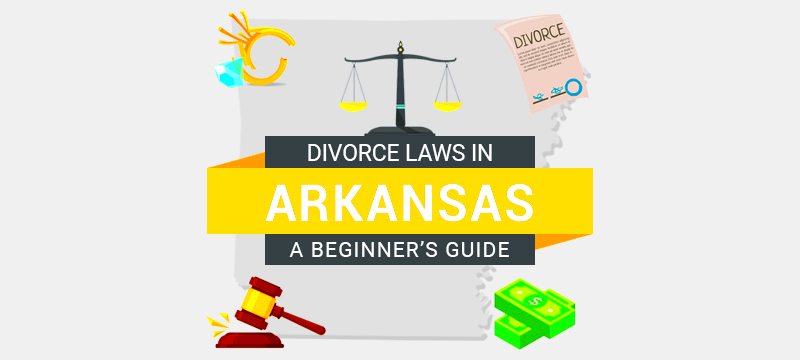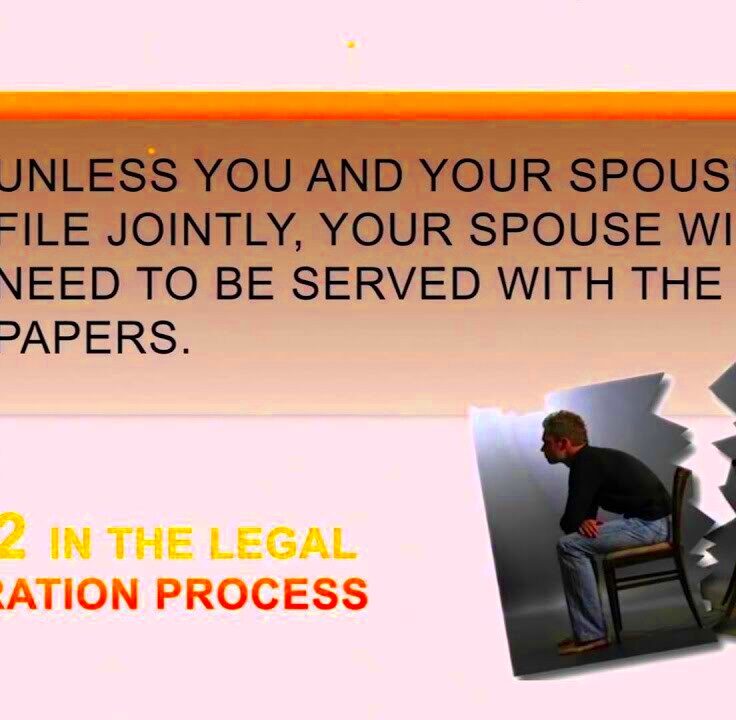What You Need to Know About Arkansas Legal Separation Laws
Legal separation in Arkansas offers couples an alternative to divorce while allowing them to live apart. This process can help individuals assess their marriage without permanently ending it. Understanding the specifics of legal separation laws in Arkansas is essential for those considering this option. It enables couples to make informed decisions about their future and the arrangements for children, property, and financial obligations.
Understanding Legal Separation vs. Divorce

Many people confuse legal separation with divorce, but they are quite different. Here’s a breakdown of their key differences:
- Legal Status: In a legal separation, couples remain married but live apart. In divorce, the marriage is officially dissolved.
- Reconciliation: Legal separation allows for the possibility of reconciliation, whereas divorce ends the marriage.
- Legal Agreements: Legal separation involves court-approved agreements on child custody, property division, and support, similar to divorce settlements.
- Health Insurance: Some individuals may retain health insurance benefits through their spouse during separation, which is lost in divorce.
Ultimately, the choice between legal separation and divorce depends on individual circumstances and long-term goals.
Grounds for Legal Separation in Arkansas

In Arkansas, couples can seek legal separation based on several grounds. These grounds often reflect issues affecting the marriage and the couple’s ability to live together. Here are the common grounds:
- Irreconcilable Differences: This is the most common ground, indicating that the couple cannot resolve their conflicts.
- Adultery: Infidelity can lead to legal separation, as it fundamentally disrupts trust in the relationship.
- Abuse: Physical, emotional, or psychological abuse can be a valid reason for seeking separation for safety reasons.
- Substance Abuse: Issues with drugs or alcohol can create significant challenges in a marriage.
- Desertion: If one spouse has abandoned the other, it may warrant a legal separation.
Understanding these grounds is crucial for couples considering legal separation, as they set the stage for the legal process ahead.
Filing for Legal Separation in Arkansas

Filing for legal separation in Arkansas is a straightforward process, but it does require careful attention to detail. To initiate the process, one spouse must file a petition for legal separation with the court. This petition outlines the reasons for separation and any requests regarding child custody, support, and property division. Here’s how you can navigate the filing process:
- Choose the Right Court: File your petition in the circuit court of the county where either spouse resides.
- Prepare Your Documents: Gather necessary documents, including financial disclosures, a proposed parenting plan if children are involved, and any existing agreements regarding property.
- Complete the Petition: Fill out the legal separation petition form accurately, detailing your circumstances and requests.
- File the Petition: Submit your completed petition to the court, along with any required filing fees.
- Serve Your Spouse: Ensure your spouse receives a copy of the petition through a legal process server or sheriff’s department.
- Attend the Hearing: A court hearing may be scheduled where both parties can present their case. Be prepared to discuss your needs and any agreements reached.
Once the court approves the separation, it will issue a decree outlining the terms, which can include custody arrangements, property division, and spousal support.
Effects of Legal Separation on Property and Debt
Legal separation impacts how property and debts are handled. It’s essential to understand these effects, as they can significantly influence your financial situation. Here’s a closer look at how legal separation affects property and debt:
- Property Division: During legal separation, property acquired during the marriage may still be considered marital property. The court will divide assets fairly, though not always equally, based on various factors such as the length of the marriage and each spouse’s contributions.
- Debts: Debts incurred during the marriage typically remain joint liabilities. The court may assign responsibility for specific debts in the separation agreement.
- Separate Property: Property owned before the marriage or received as a gift may be deemed separate and typically not subject to division.
- Legal Agreements: Couples can create legal agreements regarding property and debt during separation, which the court can enforce.
Understanding these effects is vital, as they can have long-term implications on financial stability and future decisions, including divorce.
Child Custody and Support in Legal Separation
When couples with children choose legal separation, determining child custody and support becomes a priority. The court’s main focus is the best interests of the children. Here are the key aspects to consider:
- Child Custody Arrangements: Parents can agree on custody arrangements, which may be joint or sole custody. The court will evaluate various factors, including the child’s relationship with each parent, their needs, and each parent’s ability to provide for them.
- Visitation Rights: If one parent has primary custody, the other may receive visitation rights. These rights can be outlined in the separation agreement.
- Child Support: The court usually requires the non-custodial parent to pay child support, which helps cover the child’s living expenses, education, and healthcare. The amount is determined based on income, the needs of the child, and state guidelines.
- Modifications: Circumstances may change, requiring modifications to custody or support arrangements. Parents can request these changes through the court.
Establishing clear custody and support agreements during legal separation can set a positive tone for co-parenting, ensuring that children’s needs remain a priority.
Duration and Finalization of Legal Separation
The duration of a legal separation in Arkansas can vary depending on individual circumstances and the specifics of the case. Unlike divorce, which has a definitive endpoint, legal separation can be more fluid. Here’s what you need to know about its duration and how it can be finalized:
- Temporary Arrangements: Legal separation often involves temporary agreements on child custody, support, and property division. These arrangements can remain in place until either party seeks a divorce or reconciliation.
- Indefinite Duration: There is no set time limit for legal separation in Arkansas. Couples may choose to remain legally separated for months or even years, depending on their situation.
- Finalization: To finalize a legal separation, a couple must reach an agreement on all terms, which the court must approve. This includes custody arrangements, support payments, and property division.
- Transition to Divorce: If a couple decides to move forward with a divorce after a legal separation, they can use the separation agreement as a basis for their divorce settlement, simplifying the process.
It’s essential for individuals to communicate openly about their intentions during this time, as a legal separation can lead to significant changes in their lives and relationships.
Frequently Asked Questions About Legal Separation
When it comes to legal separation in Arkansas, many people have common questions. Here are some frequently asked questions that can help clarify this process:
- What is the difference between legal separation and divorce? Legal separation allows couples to live apart while remaining married, whereas divorce permanently ends the marriage.
- Can I date while legally separated? Yes, you can date during legal separation, but it may affect custody and support arrangements.
- Do I need an attorney to file for legal separation? While it’s not mandatory, having an attorney can help ensure that your rights are protected and that all documents are correctly filed.
- Can legal separation lead to divorce? Yes, many couples use legal separation as a stepping stone to divorce.
- Is legal separation recognized in other states? Legal separation is recognized in many states, but the laws and processes may vary. It’s essential to check the specific laws in your state.
Understanding these common questions can provide peace of mind for those considering legal separation and help them navigate the process more effectively.
Conclusion on Arkansas Legal Separation Laws
Legal separation in Arkansas serves as a valuable option for couples looking to live apart without dissolving their marriage. It allows individuals to address important issues like child custody, property division, and financial obligations while keeping the door open for reconciliation. Understanding the intricacies of the process, from filing to the effects on property and child support, is crucial for making informed decisions. Whether you’re contemplating a separation or already in the process, seeking legal advice can help ensure your rights are protected and that your family’s needs are prioritized. Ultimately, legal separation can provide a pathway to clarity and stability during challenging times.


